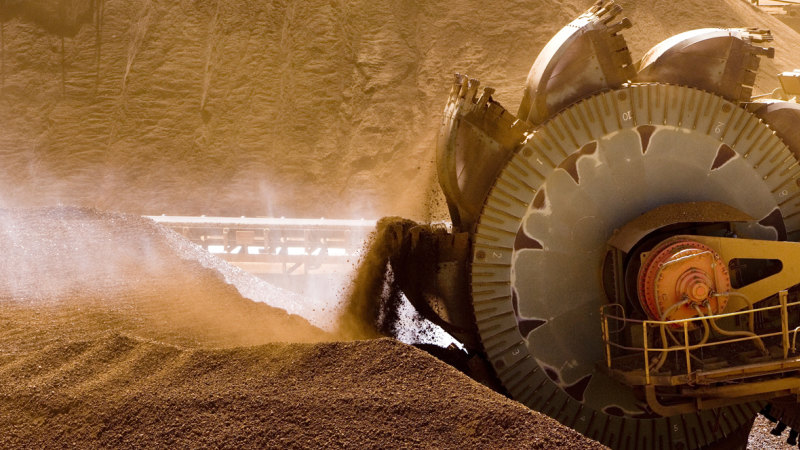A coalition of some of the nation’s largest carbon polluters, including mining and energy companies, is urging Australian governments to deliver even deeper greenhouse gas cuts days after the Albanese government passed new laws to impose industrial emissions caps.
Under the 2015 Paris Agreement, countries across the globe pledged collective action to limit global warming as close as possible to 1.5 degrees, the level scientists say is needed to avert the most catastrophic effects of climate change. The Albanese government legislated to deliver an emissions cut of 43 per cent by 2030 and net zero by 2050, but that is consistent with global action leading to 2 degrees of warming or more.
A group of Australian industry heavyweights is backing tougher emissions policies. Credit:Bloomberg
On Tuesday, 17 of Australia’s largest miners, manufacturers and industry financiers called for state and federal governments to deliver more ambitious climate reform to meet the goal of the Paris Agreement and limit global warming to 1.5 degrees.
“Urgent action is required to work towards reducing greenhouse gas emissions consistent with global efforts to limit warming to 1.5 degrees,” said a statement issued by the Australian Industry Energy Transitions Initiative, whose partners represent around a fifth of Australia’s industrial emissions and a third of the ASX100 market value.
They include BHP, Rio Tinto, Woodside, BP, Fortescue, BlueScope Steel, Wesfarmers, Orica, Schneider Electric, Aurecon, Westpac, HSBC, Australian Super, CBUS, the Clean Energy Finance Corporation and peak bodies Australian Industry Group and Australian Industry Greenhouse Network.
UN Secretary-General Antonio Guterres said last month the world was on track to reach 1.5 degrees of warming as soon as 2040 and reversing the trend would “take a quantum leap in climate action”.
The Climate Analytics think tank found Australia would need to cut its emissions by at least 70 per cent by 2030 and reach net zero by 2035 to be consistent with a 1.5-degree target.
The Australian Industry Energy Transitions Initiative said the current global energy crunch, spurred by Russia’s invasion of Ukraine, should not distract from the need to cut emissions.
“Decarbonisation can build competitiveness and create jobs by delivering low-cost, reliable, decarbonised energy at scale, a shift to electrification and developing new export-oriented industries,” the statement said.
The Albanese government on Thursday legislated reforms to the safeguard mechanism that force the nation’s 215 biggest polluters to cut their carbon footprint by about 5 per cent a year until the end of the decade, to deliver about one-third of the cuts needed to reach Australia’s legally binding 2030 climate goal.
An Orica spokesperson said the company was committed to limiting warming to 1.5 degrees and supported tighter emissions caps for polluters.
“We support the government’s reforms and strengthening of the mechanism, and believe a more robust approach to baseline setting will drive material emissions reductions across Australia’s industrial sector.”
Rio Tinto has previously called for climate policies to limit warming to 1.5 degrees including a market-based price on carbon such as in emissions trading systems.
Cut through the noise of federal politics with news, views and expert analysis from Jacqueline Maley. Subscribers can sign up to our weekly Inside Politics newsletter here.
Most Viewed in Politics
From our partners
Source: Read Full Article


